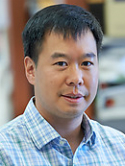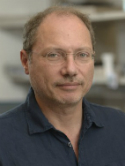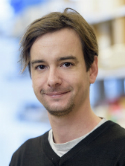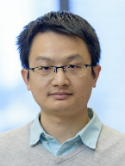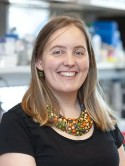The nuclear factor ID3 endows macrophages with a potent anti-tumour activity Journal Article
| Authors: | Deng, Z.; Loyher, P. L.; Lazarov, T.; Li, L.; Shen, Z.; Bhinder, B.; Yang, H.; Zhong, Y.; Alberdi, A.; Massague, J.; Sun, J. C.; Benezra, R.; Glass, C. K.; Elemento, O.; Iacobuzio-Donahue, C. A.; Geissmann, F. |
| Article Title: | The nuclear factor ID3 endows macrophages with a potent anti-tumour activity |
| Abstract: | Macrophage activation is controlled by a balance between activating and inhibitory receptors1-7, which protect normal tissues from excessive damage during infection8,9 but promote tumour growth and metastasis in cancer7,10. Here we report that the Kupffer cell lineage-determining factor ID3 controls this balance and selectively endows Kupffer cells with the ability to phagocytose live tumour cells and orchestrate the recruitment, proliferation and activation of natural killer and CD8 T lymphoid effector cells in the liver to restrict the growth of a variety of tumours. ID3 shifts the macrophage inhibitory/activating receptor balance to promote the phagocytic and lymphoid response, at least in part by buffering the binding of the transcription factors ELK1 and E2A at the SIRPA locus. Furthermore, loss- and gain-of-function experiments demonstrate that ID3 is sufficient to confer this potent anti-tumour activity to mouse bone-marrow-derived macrophages and human induced pluripotent stem-cell-derived macrophages. Expression of ID3 is therefore necessary and sufficient to endow macrophages with the ability to form an efficient anti-tumour niche, which could be harnessed for cell therapy in cancer. The Kupffer cell lineage-determining factor ID3 selectively endows macrophages with the ability to phagocytose live tumour cells and orchestrate the recruitment, proliferation and activation of natural killer and CD8+ T lymphoid effector cells to restrict the growth of a variety of tumours. |
| Keywords: | phagocytosis; differentiation; apoptotic; stem-cells; cells; growth; induction; circulating tumor-cells; kupffer cells; loop-helix proteins; mutant p53 |
| Journal Title: | Nature |
| Volume: | 626 |
| Issue: | 8000 |
| ISSN: | 0028-0836 |
| Publisher: | Nature Publishing Group |
| Date Published: | 2024-02-22 |
| Language: | English |
| ACCESSION: | WOS:001174216600006 |
| DOI: | 10.1038/s41586-023-06950-4 |
| PROVIDER: | wos |
| PMCID: | PMC10881399 |
| PUBMED: | 38326607 |
| Notes: | The MSK Cancer Center Support Grant (P30 CA008748) is acknowledged in the PDF -- Corresponding author is MSK author: Frederic Geissmann -- Source: Wos |
Altmetric
Citation Impact
BMJ Impact Analytics
MSK Authors
Related MSK Work






